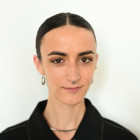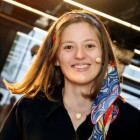Conference Highlights
Spotlight Stage
Slow Learning in a Fast World: Reclaiming Time, Attention, and Resilience in Training
DescriptionSpotlight Stage
Date Thursday, Dec 4 Time – Room Potsdam III
Slow Learning in a Fast World: Reclaiming Time, Attention, and Resilience in Training
In an age of information overload, ever-accelerating technologies, and on-demand learning, learners today are required to continuously reskill, upskill, and newskill. Rooted in the global slow movement, this talk features the emergence of the slow learning paradigm, born from creative collaboration, deep reflection, and a desire to reclaim time for lifelong learning in the digital age. It’s time to praise questions over answers, observations over evaluations, and “mindware” over software. Lessons from the tortoise and the hare taught us what happens when we’re slow and steady. How might we adopt a snail-like pace to make learning and innovation more meaningful and mindful?

Delphine Dall'Agata
Associate Programme Officer, International Training Centre of the ILO (ITCILO)
Delphine Dall’Agata currently acts as Learning Innovation Officer at the International Training Centre of the ILO (ITCILO), a United Nations agency that provides professional training for the world of work. Over the past 6 years, her work has focused on designing and facilitating innovative online and in-person learning events in over 10 countries. As a UN Innovation Fellow, she actively advocates for forward-thinking experimentation and co-creative solutions at the crossroads of innovation and inclusion. In 2023, she was nominated as one of the 30 Under 30 members of the Learning Technologies Exhibition & Conference, which spotlights the next generation of global leaders in the learning and development field. Previously, she was a Fulbright Scholar for the USA-Italy Fulbright Commission. She holds a Bachelor’s Degree from Dickinson College (USA) and a Master’s Degree from the Turin School of Development (Italy).
Moderator

Ildiko Mazar
Sector Consulting Manager, NTT Data, Spain
Ildiko has over 25 years of professional experience in the field of open education and e-learning, and she is particularly passionate about informed and transparent knowledge, skill and competence recognition. In the past 5 years Ildiko has been focusing mostly on supporting the development and uptake of innovative solutions in the fields of competence development and digital (micro-)credentialing, more specifically the European Learning Model and European Digital Credentials for Learning. She is member of the CTDL Advisory Board, and one of the 3 Co-Chairs of the W3C Credentials Community Group's VC-EDU task force.
Links
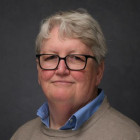
Glenda Morgan
Market Analyst, Phil Hill & Associates
Glenda Morgan is a Market Analyst at Phil Hill & Associates and the lead analyst at Morgan EdTech Strategies, helping higher education institutions, vendors and investors navigate the edtech landscape. She brings more than 30 years of experience in higher education, including roles as a faculty member, IT administrator and education analyst at Gartner and Director of Academic Technology Services at the University of Illinois at Urbana-Champaign. Morgan holds a PhD in political science from the University of Minnesota.
Links
Learning Café
Smarter Tech, Same Mistakes: Why Learning Transfer is Still the Elephant in the Room
DescriptionLearning Café
Date Friday, Dec 5 Time – Room Tegel
Smarter Tech, Same Mistakes: Why Learning Transfer is Still the Elephant in the Room
Everyone’s talking about AI, but few are asking the most important question in workplace learning: what changes at work after learning takes place? Despite decades of innovation in technology and platforms, the gap between learning and doing persists, not for lack of solutions, but from low adoption. This interactive Learning Café tackles that gap head-on. Explore the process of embedding new behaviours into the workflow, examine the mindsets and support needed, and consider how technology, including AI, can help or hinder learning transfer.
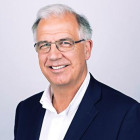
Paul Matthews
CEO, People Alchemy
Paul Matthews is one of the leading Learning & Development experts, with three best-selling books to his name. An accomplished keynote speaker, he speaks around the world on a diverse range of topics. He brings L&D to life with stories from his extensive travels that fascinate and inspire. He is known for reducing complex theory down to practical tools and sharing them in a way that everyone can use to get better results. As well as being a sought-after speaker, Paul provides consultancy services, training workshops and webinars for blue-chip clients in the UK and beyond.
Links

Philipp Höllermann
Chief Transformation Officer, DWG - A Klett Company
Philipp Höllermann is an expert in digital transformation, e-learning, and higher education. His work focuses on digitizing (learning) processes, mobile, social and blended learning, open innovation, and artificial intelligence. Mr. Höllermann is a member of several digital learning initiatives, such as the German Forum for Higher Education in the Digital Age, the Network for Digital Education, and Bitkom, and regularly appears as a speaker on topics related to online learning and digital transformation. He currently works as Chief Transformation Officer (CTO) at DWG, one of the largest education holdings in Germany.
Learning Café
AI and Productivity - From Attention Economy to Productive Economy
DescriptionLearning Café
Date Friday, Dec 5 Time – Room Charlottenburg II
AI and Productivity - From Attention Economy to Productive Economy
AI has flipped the script from technological escapism to practical utility. This session explores how generative AI is already boosting productivity, cutting tasks from hours to minutes, augmenting human expertise, and unlocking efficiencies across sectors. The data shows the gains are real.
Productivity growth is not smooth but spiky. AI transforms some sectors (marketing, healthcare, research) while others lag (education, arts). This session maps the uneven landscape, explaining why adoption is fragmented, where breakthroughs occur, and how we can exploit this jagged edge.
The AI conversation has moved from hopes and fears to practical deployment. We’ll look at how organisations can integrate AI into workflows, measure impact, redesign roles and build ‘AI-first’ strategies.
This talk is based on Donald’s new book AI and Productivity, which is hot off the press, published Nov 3.

Donald Clark
eLearning Expert and Strategist, Plan B Learning
Donald Clark is a Learning Tech Entrepreneur, CEO, Investor, Author, Podcaster, Blogger and Speaker. He was CEO and one of the original founders of Epic Group plc, which established itself as the leading company in the UK online learning market, floated on the Stock Market in 1996 and sold in 2005. He has been involved at all levels of investment – angel, VC, growth, PE and IPO. As well as being the CEO of Wildfire, an AI learning company, he also invests in, and advises, EdTech companies.
An investor and board member of learning companies Cogbooks (sold in 2021 to Cambridge University) and Learning Pool (sold 2021 for $200 million), he was also on the Boards of City & Guilds, Learn Direct, University for Industry and the Brighton Dome and Festival. Wildfire delivers AI products and consultancy. He has published 3 books, on ‘AI for Learning’, ‘Learning Experience Design’ and ‘Learning Technology’. His fourth book on Learning in the Metaverse has just been commissioned.
Donald has over 37 years experience in online learning, video, games, simulations, semantic, adaptive, chatbot, social media, mobile learning, virtual reality, AI and Metaverse projects. He has designed, delivered and advised on online learning for many global, public and private organisations. An evangelist for the use of technology in learning, he has won many awards, including the first ‘Outstanding Achievement in E-learning Award’ and ‘Best AIM Stock Market Company’, ‘Most Innovative Online Product’, ‘Best Online Learning Project and ‘JISC EdTech Award’.
An award winning speaker at national and international conferences, he has delivered keynotes in the UK, Europe, US, Africa, Australia, Middle and Far East.
His podcast series ‘Great Minds on Learning’ and 200+ articles on learning theorists are all online…… also a regular blogger (15 years+) on learning technology.
Books
AI for learning (2020) https://amzn.to/3HmAcIN
Learning Experience Design (2021) https://amzn.to/3zDMdYk
Learning Technologies (to be published Jan 2023)
Metaverse and learning (to be published late 2023)
Blogs
Series on 200 learning theorists, from the Greeks to the Geeks https://bit.ly/3OdrPBs
Podcasts
Great Minds in Learning
GREEKS https://bit.ly/3HpowVy
ENLIGHTENMENT http://bit.ly/3oy80ec
BEHAVIOURISTS http://bit.ly/3iUnINE
COGNITIVISTS http://bit.ly/3oUxOBK
PRACTICE http://bit.ly/3aAK5mk
INSTRUCTIONALISTS http://bit.ly/3FEdYk8
MORALISTS http://bit.ly/3qgdQC8
SOCIAL https://bit.ly/3MTLGEw
ASSESSORS bit.ly/3IX2A3C
AFFECTIVE https://bit.ly/3HsDDhe
INFORMAL https://bit.ly/3zym8Km
WORKFLOW https://bit.ly/3xU4Q9n
ONLINE LEARNING https://bit.ly/3Qn1Vgw
The Learning & Development Podcast with David James https://bit.ly/3zzCGSd
Reimagining Education with James Manion bit.ly/32D2LSf
AI, Data, and Optimism with Leading Learning https://bit.ly/3tEyQUa
AI is the New UI with John Helmer apple.co/3qF8oas
Enhancing learning experiences using AI with Learning Science bit.ly/3FJGdNR
The History of Learning and the Learning of History apple.co/3sMjXQ2
Videos
Don't lecture me! bit.ly/3HmLOtT
TEDx Talk More pedagogic change in 10 years than last 1000 years bit.ly/3quRxqU

Callum Clark
CTO, Wildfire
When he’s not training for his next Taekwon-Do match, Callum spends his time working on WildFire, an AI driven learning content creation system. He has a background in Natural Language Processing and has a degree in Data Science and Knowledge Engineering for Maastricht University in the Netherlands. Callum is also a member of the ITF England Taekwon-Do Team, where he currently preparing to compete in the upcoming European Championships.
Presentation
New Work beyond Hype: Leading Universities into Transformational Change
DescriptionPresentation
Date Thursday, Dec 4 Time – Room Bellevue
New Work beyond Hype: Leading Universities into Transformational Change
New Work offers innovative approaches to connect traditional institutional structures with a new dynamic work environment. My presentation highlights key areas, exploring the potential of New Work for higher education organizations. We‘ll discuss and reflect on transformation processes, and create new perspectives for the "future of work" at universities.

Anne Prill
Project Manager, CHE Centre for Higher Education Development
Anne Prill has been project manager for the Higher Education Forum on Digitalization at the CHE Center for Higher Education Development since 2017. As a transformation designer, she is primarily responsible for the topics of “future-oriented learning spaces” and “new work at universities.” She publishes HFD working papers and articles and gives keynote speeches at various events. She also initiated the HFDlead tandem program, in which she brings together university management teams from across Germany to exchange ideas and experiences.
She studied business administration at the University of Sunderland and economics, European politics, and law at the Technical University of Applied Sciences in Wildau. While working, she also completed her master's degree in adult education at the Technical University of Kaiserslautern. Since September 2024, she has been a certified systemic transformation coach.
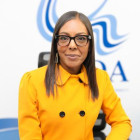
Nadia Starr
CEO, SAQA
Ms Nadia Starr is the Chief Executive Officer of SAQA. Prior to SAQA, Ms Starr spent 10 years in senior management and non-executive director roles in the public sector, working with education and training policy development, quality assurance, youth skills development, and funding mechanisms. She has previously served as Chief Executive Officer of a high-performing Sector Skills Council.
Ms Starr holds a Bachelor's and a Postgraduate degree in Psychology from the University of Cape Town (UCT) and a Master of Education from the University of Witwatersrand (Wits), along with several occupational certifications.
Ms Starr currently serves as an executive director on the Board of the South African Qualifications Authority (SAQA) and non-executive director on the National Boards of the Human Resource Development Council of South Africa (HRDC), National Skills Authority (NSA), Quality Council for Trades and Occupations (QCTO), Council on Higher Education (CHE), Quality Council for General and Further Education and Training (Umalusi) as well as non -executive director on the International Boards of the Groningen Declaration Network (GDN) and United States Qualifications Framework (USQF). Ms Starr was also elected to serve as Co-President of the African Continental Qualifications Framework (ACQF) Network.
How To
Becoming a Business Partner: How to Position L&D Strategically
DescriptionHow To
Date Thursday, Dec 4 Time – Room Rook
Becoming a Business Partner: How to Position L&D Strategically
Please note: This is a Sign-In Session with limited capacity. Click “Mark this Session” to reserve your place. If you can’t attend, please unmark it so others may join. Seats of participants who haven’t arrived 5 minutes after the start will be released to others on site.
Struggling to make L&D heard while business stakeholders launch training independently? This hands-on session shows how to analyse your learning ecosystem, engage key stakeholders, and turn their energy into collaboration. Participants will discover practical strategies to position L&D at the heart of organisational learning, build ambassadors for learning, and create coherent, impactful development initiatives that stick.
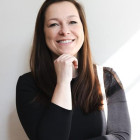
Henriette Kloots
Senior L&D Consultant, Interlocked
Henriette Kloots is an Organisational psychologist and Sr. Learning & Development consultant. After spending years on both the vendor and corporate side of L&D, she became independent in 2015. Interlocked is focuses on connecting the business and learning. When the business and L&D cooperate within the context of the organization they create real organizational change through impactful learning interventions. Henriette is a very energetic professional with a lot of passion for the industry and she is “here to challenge”.
Links
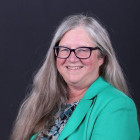
Karen Vignare
Vice President, Association of Public Land-Grant Universities (APLU)
Karen Vignare, Ph.D., currently serves as Vice Provost, the Center for Innovation in Learning and Student Success at University of Maryland University College (UMUC) leading the search and evaluation for next generation learning models. The Center for Innovation in Learning serves as the research and development arm of UMUC’s academic organization. Dr. Vignare is responsible for identifying innovations and collaboratively implementing with core teams at UMUC. Areas of experimentation will include adaptive learning, onboarding, prior learning, course design, analytics, e-resources, open educational resources, instructional design changes, competency based models. She has been active in online learning for over 15 years. Karen has published research on online learning in areas such as business models, serving special populations, open education, blended learning, corporate training and data organization. She has a Ph.D. from Nova Southeastern University and a M.B.A from the University of Rochester’s William Simon School of Business.
Boardroom
Solving the Problem of Core Digital and Data Skills
DescriptionBoardroom
Date Thursday, Dec 4 Time – Room King
Solving the Problem of Core Digital and Data Skills
Please note: This is a Sign-In Session with limited capacity. Click “Mark this Session” to reserve your place. If you can’t attend, please unmark it so others may join. Seats of participants who haven’t arrived 5 minutes after the start will be released to others on site.
Digital skills are increasingly essential for meaningful participation in modern societies and workplaces, yet many adults worldwide lack foundational competencies. This boardroom dialogue explores research-informed, practice-based approaches to developing and assessing core digital and data skills, drawing on prototype learning platforms and real-world trials. Participants will learn effective strategies for skill development, assessment methods, and ways to support learners in building competencies that are relevant, measurable, and transferable across professional contexts.
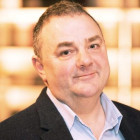
Peter Gillis
Innovation Services Lead, Learnovate
Peter is an experienced team lead, skilled in the practices of: innovation (JTBD, Lean Startup, Design Thinking), digital strategy, and strategy and corporate company management. Peter is also a researcher with a demonstrated history of working in the EdTech research industry. He lectures on the psychology of learning on several masters programmes. Peter holds a first-class honours degree in Psychology, the focus of his research was cognitive theory of multimedia learning. In 2012, he completed an MSc in Technology Enhanced Learning at Trinity College Dublin. His research interest is the interaction between motivation and technology-enhanced learning. Peter developed his research on motivation and learning through the PhD programme at TCD. Peter has over two decades commercial experience in the digital design and communications industry. He was Managing Director of one of the first multimedia agencies in Ireland working with blue-chip clients in Ireland and the US.
Learning Café
Digital Wellbeing at University: Challenges, Opportunities, and Solutions
DescriptionLearning Café
Date Thursday, Dec 4 Time – Room Rook
Digital Wellbeing at University: Challenges, Opportunities, and Solutions
Please note: This is a Sign-In Session with limited capacity. Click “Mark this Session” to reserve your place. If you can’t attend, please unmark it so others may join. Seats of participants who haven’t arrived 5 minutes after the start will be released to others on site.
The mental health of students is deteriorating, and universities have an institutional responsibility to take action. This requires more than just individual coping strategies; it necessitates the implementation of systemic support structures.
Digitalisation presents significant challenges and opportunities for wellbeing. Risks include technostress and isolation. However, opportunities lie in the enhanced flexibility and use of digital tools for support and prevention. It is essential to take a holistic approach, integrating wellbeing and mental health into university strategy. This requires cross-functional collaboration and long-term structures, such as holistic university health management. Universities can implement practical digital measures now.
Universities can implement practical digital measures now. These may include using digital surveys for assessment, establishing clear digital information points, using social media for outreach and integrating existing digital health services. Learning from good practice and securing long-term financing are crucial for the necessary change. Participation in networks and collaboration can support these efforts.
This Learning Café offers an opportunity to further develop an understanding of the importance of a holistic and strategic approach to wellbeing and mental health in the digital age, while also growing an international network.
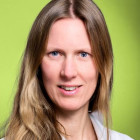
Channa van der Brug
Programme Manager, University Forum on Digitalisation for the Stifterverband
Channa van der Brug facilitates the exchange of innovative strategies between universities, policymakers, and technology experts to accelerate the digital transformation of higher education. She supports the development of digital learning environments that enhance learning, teaching and student engagement on an international scale. She contributes her expertise to two projects for the Stifterverband: the Hochschulforum Digitalisierung and the European Digital Education Hub. Founded in 1920, the Stifterverband is a joint initiative of German companies and foundations that advises on and promotes improvements in education, science and innovation.
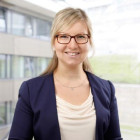
Tina Basner
Project Manager, CHE Centre for Higher Education Development
Tina Basner works at the CHE Centre for Higher Education Development as a project manager at the "Hochschulforum Digitalisierung" in Germany. Since 2021, the sociologist has led various think tanks, focusing particularly on issues of equity & participation and more recently on well-being and mental health in digital learning environments. Additionally, she works in the area of internationalization and regularly reports on digital teaching and learning innovations at international universities. Tina Basner is a trained agile coach and team trainer. She studied adult education at the Humboldt University in Berlin and education & sociology at the University of Kiel.
How To
The Horror House of AI - What Makes AI So Scary?
DescriptionHow To
Date Thursday, Dec 4 Time – Room Queen
The Horror House of AI - What Makes AI So Scary?
Please note: This is a Sign-In Session with limited capacity. Click “Mark this Session” to reserve your place. If you can’t attend, please unmark it so others may join. Seats of participants who haven’t arrived 5 minutes after the start will be released to others on site.
Step into the "Horror House of AI" for a playful yet insightful look at why AI sparks fear, especially in education. From job loss to ethical concerns, participants will explore exaggerated headlines and real worries through short case studies. What fuels our anxiety: loss of control, misinformation, or uncertainty? This interactive session invites laughter, reflection, and debate to unpack the FUDD (Fear, Uncertainty, Doubt, Disinformation) around AI, and aims to equip educators and decision-makers to face these fears with greater clarity and confidence.
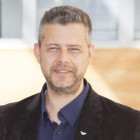
Bert De Coutere
IP & Innovation Lead, Center for Creative Leadership
Bert’s professional life is all about competent people. He thinks, publishes, consults, designs and sets up learning and development projects for corporations. His areas of expertise include technology enhanced learning, leadership development and innovation.
Bert has been active in the field of corporate learning and e-learning for the last 25 years, first as instructor and course designer, later as project manager, consultant and business development manager. He worked at IBM Learning Development Europe where he was responsible for commercial e-learning development projects across Europe, and the management of the learning innovation initiatives. Thirteen years ago he joined the Center for Creative Leadership where he is now part of the global innovation team.
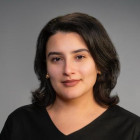
Cleopatra Hammad
Global Product Training Manager, ABB
Cleopatra Hammad is a Global Product Training Manager at ABB, where she designs and delivers learning experiences for the global sales audience. She has previously worked as an instructional designer for universities across the UK, Europe, and Australia, creating online courses in areas such as data analytics, digital marketing, and programming languages. Cleopatra is currently pursuing a PhD in Educational Sciences at the University of Oulu in Finland, where her research explores how collaboration is triggered in technology-driven learning environments. Her passion lies in bridging academic and corporate learning to make training more meaningful, collaborative, and relevant across sectors.
Tandem Talk
The Impact of (Atypical) Personal Learning Journeys on Resilience
DescriptionTandem Talk
Date Thursday, Dec 4 Time – Room Potsdam III
The Impact of (Atypical) Personal Learning Journeys on Resilience
What inspires a lifelong commitment to learning? In this Tandem Talk, the speakers explore how atypical learning paths, life’s ongoing turning points, and unconventional choices can lead to resilience and professional growth. Drawing from their own diverse careers - from researcher, entrepreneur to comedian, they reflect on the personal sparks, mentors, and challenges that shaped their journeys. Through storytelling and audience interaction, this spotlight invites participants to reflect on their own learning paths and discover the hidden drivers that have guided them through change and into education.
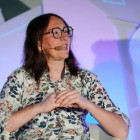
Inge de Waard
Learning Strategist and Connector, EIT InnoEnergy
Inge de Waard is the learning strategist at EIT InnoEnergy, she is a longtime researcher, activist, award-winning learning innovator and (e)Learning coordinator. She developed multiple online & hybrid courses, co-designed AI tools, and embedded learning innovations. Inge coaches and co-creates international, blended curricula with engineers and teachers, and explores innovative learning formats. Her expertise is recognized by peers, resulting in additional co-authored papers, invited talks and keynotes in both academic and professional conferences, workshops and seminars. She recently founded the Power Elders initiative to spotlight role models who changed their lives at any age beyond 50. Most of all, she likes to connect with people and share stories.
Links

Nadia Starr
CEO, SAQA
Ms Nadia Starr is the Chief Executive Officer of SAQA. Prior to SAQA, Ms Starr spent 10 years in senior management and non-executive director roles in the public sector, working with education and training policy development, quality assurance, youth skills development, and funding mechanisms. She has previously served as Chief Executive Officer of a high-performing Sector Skills Council.
Ms Starr holds a Bachelor's and a Postgraduate degree in Psychology from the University of Cape Town (UCT) and a Master of Education from the University of Witwatersrand (Wits), along with several occupational certifications.
Ms Starr currently serves as an executive director on the Board of the South African Qualifications Authority (SAQA) and non-executive director on the National Boards of the Human Resource Development Council of South Africa (HRDC), National Skills Authority (NSA), Quality Council for Trades and Occupations (QCTO), Council on Higher Education (CHE), Quality Council for General and Further Education and Training (Umalusi) as well as non -executive director on the International Boards of the Groningen Declaration Network (GDN) and United States Qualifications Framework (USQF). Ms Starr was also elected to serve as Co-President of the African Continental Qualifications Framework (ACQF) Network.

Mélissa Lemaire
Consultant in Competencies Evaluation, Université de Montréal
Dr. Mélissa Lemaire holds a PhD in Educational Measurement and Evaluation from the Université de Montréal, completed in collaboration with HEC Montréal. She also holds an MBA from Université Laval and a Master’s degree in Educational Measurement and Evaluation from the Université de Montréal. Her research focuses on the impact of informal learning on the maintenance of professional competencies. She has extensive experience in program evaluation, impact studies, and the development of competency assessment tools. Dr. Lemaire also collaborates on multiple projects with various professional regulatory bodies across Quebec and Canada.
Learning Café
From Classroom to Cosmos: XR You Can Use
DescriptionLearning Café
Date Thursday, Dec 4 Time – Room Charlottenburg III
From Classroom to Cosmos: XR You Can Use
Drop in, explore, and be inspired! This interactive Learning Café invites participants to discover and discuss real-world applications of Augmented and Virtual Reality in education, training, and professional development, in action. In a relaxed World Café-style setting, participants will try out immersive tools, hear what works and what doesn’t, and share their own ideas. Whether new to XR or already experimenting, they will find a practical, informal space for peer-to-peer exchange, hands-on demos, and future-facing conversation.
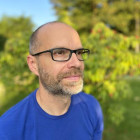
Bart Boelen
Educational Technology, Research, Coaching, Teaching, University of Applied Sciences Leuven Limburg
Bart is researcher, lecturer and coach in educational technology at UC Leuven Limburg, Belgium. He supports colleagues and teams in the development of hybrid courses. He is also involved in research projects in the broad field of hybrid learning and educational technology. Currently the field of XR and AI in learning!
In the past he was the driving force behind educational innovation at the T2-campus in Genk, implementing mobile learning and VR/AR in technical training.
Links
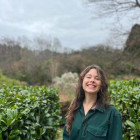
Jana Duchateau
Junior Researcher and Lecturer , UCLL University of Applied Sciences
Jana Duchateau's academic background is in Spanish and French Linguistics and Literature, with a Master of Arts degree. Her professional career commenced in an international company, where she specialised in enhancing client relations, communication, and internship coaching. Subsequently, she embarked on her academic journey at UCLL University of Applied Sciences, initially as a Coordinating Admissions Officer. In this role, she contributed to efficiency-improving projects. Additionally, Jana held the positions of lecturer and student tutor for the Advanced Bachelor Global Citizenship & Development programme. She continues in this capacity until the present day, while also combining it with her research position as junior researcher since September 2024. She has demonstrated her expertise in her inaugural national research project, which focused on Global Citizenship Education in VET (BeGlobel). She is currently working on the European funded D-Paideia project, which is now in the dissemination phase and will be presented in the OEB Learning Café.
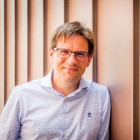
Joachim Gregoor
Researcher Care Innovation/ Centre of Digital Learning , Hogeschool PXL
I have extensive experience in digital learning and education, particularly within the healthcare sector. I currently serve as Medewerker Centrum Digitaal Leren (Digital Learning Center Employee) at Hogeschool PXL, a role I've held since September 2021. I am also involved in the "e-Hospital4Future" project, which aims to enhance the education of healthcare professionals by integrating training modules covering social, technical, and digital competencies. For over 15 years, I have been the ICT Verantwoordelijke Opleiding Verpleegkunde (ICT Manager for Nursing Education) at Hogeschool PXL. In this capacity, I have been involved in the development of E-Learning within the nursing program. My expertise includes Nursing Education and Lecturing. I also have a long history as an Instructional Designer, developing practice-oriented digital didactic materials for hospitals and home care from November 2007 to November 2021. I am also a seasoned trainer, providing training for Office 365, Onenote, Prezi, Moovly and Canva for both beginners and advanced users, a role I've had since November 2009.
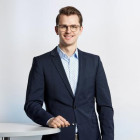
Fabian Liesenhoff
Researcher, Fraunhofer Institute for Systems and Innovation Research
Fabian Liesenhoff is a researcher at Fraunhofer ISI in the Energy Management and Smart Grids group, where he focusses on decentralized flexibility, prosuming and distribution grids. He holds a degree in Business Administration and Engineering from TU Clausthal, Germany, gradu-ating in 2022. During his studies, he conducted his Master’s thesis at Fraunhofer ISE, examining the potential of battery storage systems in reducing fossil-based generation capacity. His work bridges technical and economic perspectives to support the energy transition through innova-tive energy solutions.
Moderator
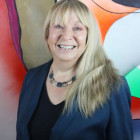
Gilly Salmon
CEO, Education Alchemists. Ltd
Professor Salmon is the founder and CEO of Education Alchemists Ltd - formed around her life's work including Carpe Diem learning design, pedagogical transformation, online education, technology-enhanced teaching, the 5 stage model, e-tivities, and Education 4.0. Until recently, Professor of Learning Transformation and pro-vice-chancellor at universities in the UK and Australia, she is now based in London with all workshops offered fully digitally and worldwide. She is a well-known keynote speaker and workshop leader. Her books E-moderating and E-tivities are considered seminal texts. https://www.linkedin.com/in/gillysalmon/
Links
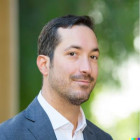
Francesco Giacalone
Learning Innovation Technology Manager, IESE Business School
Francesco Giacalone drives innovation in executive education at IESE Business School, where he leads the design and implementation of next-generation learning experiences. His work focuses on applying AI and immersive technologies to enhance how leaders learn, collaborate, and make decisions in a rapidly evolving world. At the intersection of technology, and pedagogy, Francesco explores how AI can elevate—not replace—human judgment in learning.
Learning Café
Data-Informed, Not Data-Driven: Reframing L&D Metrics for Human and Business Impact
DescriptionLearning Café
Date Thursday, Dec 4 Time – Room Chess
Data-Informed, Not Data-Driven: Reframing L&D Metrics for Human and Business Impact
Please note: This is a Sign-In Session with limited capacity. Click “Mark this Session” to reserve your place. If you can’t attend, please unmark it so others may join. Seats of participants who haven’t arrived 5 minutes after the start will be released to others on site.
As AI and analytics transform learning, L&D teams face pressure to prove impact with metrics that often fall short. This interactive roundtable challenges the “data-driven” mindset, exploring a more balanced approach that blends analytics with human judgment and values both business outcomes and learner agency. Through small-group discussion and real-world cases, participants will examine what it means to be data-informed, using metrics as tools for insight rather than accountability, and will leave with models, language, and strategies to measure what truly matters.
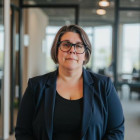
Tracie Cantu
Chief Learning Strategist, Your CLO
Tracie Cantu is Chief Learning Strategist at Your CLO and a recognized authority in learning operations and technology. With two decades of experience leading L&D transformation at organizations such as Meta, Atlassian, and Whole Foods Market, she helps companies modernize their learning functions, scale their impact, and align with business priorities. Tracie brings a sharp focus on strategy, systems, and execution. She helps L&D teams scale their impact, deliver business value, and operate like a strategic business function.

Margarita Ghulam
HR Development Expert, Urban Brussels
As an HR Development Expert at urban.brussels, I lead key HR initiatives: Training, Competence Management, Integration, Performance Management, and HR Digitalisation; within the public service that is shaping the territorial development of the Brussels capital region. With a background in labour sociology, Belgian social law, and sustainable AI, I am passionate to shape the future of work by integrating human-centered innovation (XAI) into public sector transformation, building dynamic learning ecosystems that empower both people and cities. My mission is to enhance AI literacy, promote responsible innovation, and align HR practices with technological change; while also strengthening overall workforce capabilities, including managerial and strategic competences.
Boardroom
From Learners to Leaders: Building Sustainable Learning & Work Ecosystems with Youth and Tech
DescriptionBoardroom
Date Friday, Dec 5 Time – Room Köpenick I
From Learners to Leaders: Building Sustainable Learning & Work Ecosystems with Youth and Tech
In an era of AI and rapid technological change, the distance between what students learn and where opportunities exist is growing. This boardroom dialogue convenes young leaders (OEB 30Under30) and senior ecosystem leaders to examine how to bridge that gap. Youth should be actors, not just learners, in shaping the future of work and learning. We will explore and develop an ecosystem model that connects universities, employers, and youth; modular, practice-based curricula; and pathways that move students from learning to leading, drawing on international examples and intergenerational exchange.

Jaša Levstik
Young Professional, CEF, Slovenia
"I’m most looking forward to connecting with peers who bring different perspectives on learning, from civic engagement to digital innovation. I’m excited to exchange ideas, challenge my own thinking, and explore how we can design learning that empowers people, whether they’re young citizens, public officials, or organizations navigating change."
Moderator
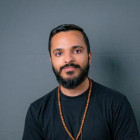
Ali Alam
Venture Partner, EarlyBird
Ali Alam — a founder-turned-venture-builder and investor on a mission to make innovation human-centric, impact-driven, and radically inclusive. With experience building award-winning university-based incubators, designing startup acceleration programs with 21st-century skills needed to thrive in volatility and advising venture funds deploying capital in human growth. Ali has worked across Africa, Europe, and emerging markets to create sustainable learning & innovation ecosystems.

